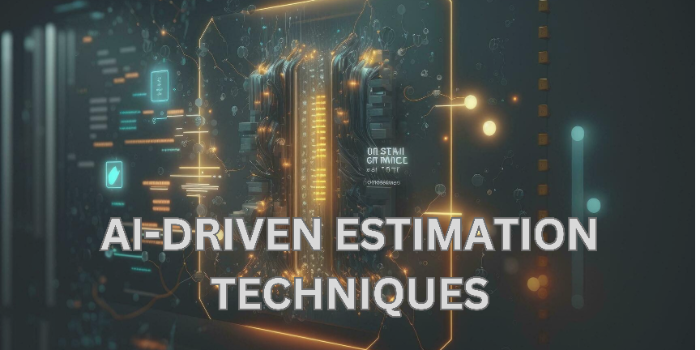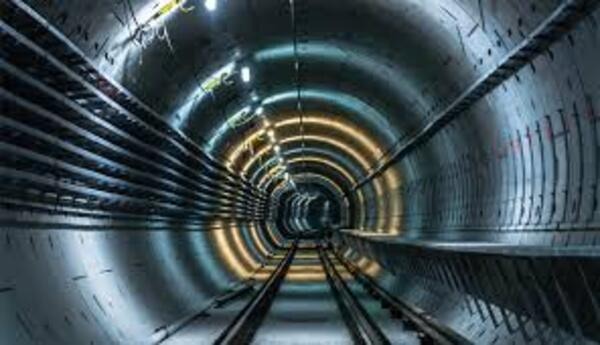
AI-Driven Estimation Techniques for Cost-Effective Construction Projects
In the fast-paced construction world, accurate cost estimation is paramount for successful project completion. Traditionally, this process has relied heavily on human expertise, historical data, and manual calculations. Misestimations can lead to budget overruns, project delays, and financial risks that jeopardize the project's completion and profitability. However, Artificial Intelligence (AI) has revolutionized construction estimation, bringing unprecedented precision and efficiency to the industry. This article delves into the transformative impact of AI-driven estimation techniques on construction projects, highlighting how these technologies can help reduce financial risks and ensure cost-effective project management.
The Evolution of Construction Estimation
From Manual Calculations to Digital Solutions
Historically, construction estimation was a labor-intensive process involving extensive data gathering, complex calculations, and reliance on human judgment. Estimators would sift through blueprints, consult with experts, and analyze past projects to derive cost estimates. While this approach had its merits, it was time-consuming and prone to human error.
The introduction of digital solutions marked a significant turning point. Software tools like spreadsheets and specialized estimation programs streamlined the process, providing more accurate and faster calculations. Yet, these tools still required substantial human input and were limited by the quality and quantity of available data.

The Advent of AI in Construction Estimation
AI has taken construction estimation to new heights by leveraging vast data, machine learning algorithms, and advanced analytics. AI-driven tools can analyze historical project data, consider numerous variables, and generate precise cost estimates in a fraction of the time required by traditional methods. This evolution has improved accuracy and enabled estimators to make data-driven decisions, reducing the risk of cost overruns and enhancing project profitability.

The Importance of Accurate Construction Estimation
Before we dive into the AI-driven techniques, let's understand why accurate construction estimation is vital:
Budget Management: Accurate estimates help in setting realistic budgets, preventing cost overruns, and ensuring that the project stays financially viable.
Resource Allocation: Proper estimation ensures efficient allocation of resources, including labor, materials, and equipment.
Project Scheduling: Estimations play a key role in developing realistic timelines, ensuring that projects are completed on time.
Risk Management: Accurate estimates help identify potential risks early, allowing for proactive mitigation strategies.
Stakeholder Confidence: Precise estimations build trust and confidence among stakeholders, including investors, clients, and contractors.
Key Benefits of AI-Driven Estimation Techniques
Enhanced Accuracy and Precision
One of the most significant advantages of AI-driven estimation is its ability to process vast amounts of data with high accuracy. Machine learning algorithms can analyze historical project data, including costs, timelines, and resource utilization, to identify patterns and trends. This data-driven approach allows AI tools to generate highly accurate cost estimates, minimizing the risk of human error and ensuring that project budgets are based on reliable information.
Time Efficiency and Speed
Traditional estimation methods can be time-consuming, often requiring weeks or even months to complete. AI-driven tools, on the other hand, can analyze data and generate estimates in a matter of hours or days. This speed not only accelerates the estimation process but also enables construction firms to respond quickly to project opportunities, giving them a competitive edge in the market.
Data-Driven Decision Making
<p style="font-family: Calibri">AI-driven estimation tools provide construction professionals with valuable insights into project costs and potential risks. By analyzing historical data and considering various scenarios, these tools can help estimators make informed decisions about project feasibility, resource allocation, and budget management. This data-driven approach reduces uncertainty and enhances the overall efficiency of project planning and execution.</p>
Risk Reduction and Financial Control
Accurate cost estimation is crucial for mitigating financial risks in construction projects. AI-driven tools can identify potential cost overruns, delays, and resource constraints, allowing project managers to proactively address these issues before they escalate. This proactive risk management approach helps ensure that projects are completed on time and within budget, minimizing financial exposure and maximizing profitability.
AI Tools Revolutionizing Construction Estimation
Artificial Intelligence brings a new level of precision and efficiency to construction estimation. Here are some ways AI is transforming this crucial aspect of construction management:
Building Information Modeling (BIM) and AI Integration
Building Information Modeling (BIM) has already transformed the construction industry by providing a digital representation of a building's physical and functional characteristics. When integrated with AI, BIM becomes an even more powerful tool for cost estimation. AI algorithms can analyze BIM data to generate detailed cost estimates, considering factors such as material quantities, labor requirements, and project timelines. This integration allows for more accurate and comprehensive cost projections, facilitating better project planning and management.
Machine Learning Algorithms for Predictive Analytics
Machine learning algorithms are at the core of AI-driven estimation techniques. These algorithms can analyze historical project data, identify patterns, and make predictions about future costs. For example, machine learning models can predict the impact of various factors, such as weather conditions, labor availability, and material prices, on project costs. By leveraging predictive analytics, construction firms can develop more accurate and realistic cost estimates, reducing the risk of unexpected expenses and delays.

Natural Language Processing (NLP) for Document Analysis
Natural Language Processing (NLP) is another AI technology that is transforming construction estimation. NLP algorithms can analyze documents such as project plans, contracts, and specifications to extract relevant information and generate cost estimates. This automation not only speeds up the estimation process but also ensures that all relevant data is considered, reducing the risk of omissions and errors. NLP-powered tools can also identify inconsistencies and ambiguities in project documents, helping to improve overall project clarity and accuracy.
AI-Driven Cost Management Platforms
Several AI-driven cost management platforms have emerged in recent years, offering comprehensive solutions for construction estimation and project management. These platforms leverage AI algorithms to analyze project data, generate cost estimates, and monitor project performance in real time. By providing a centralized hub for project data and analytics, these platforms enable construction professionals to make informed decisions, optimize resource allocation, and maintain financial control throughout the project lifecycle.
Real-World Applications of AI in Construction Estimation
Several construction companies have already started leveraging AI-driven estimation techniques to achieve remarkable results. Here are a few real-world applications:

Building Information Modeling (BIM) Integration in London, UK
In London, UK, the use of AI-powered BIM tools has significantly improved project estimation and planning. For example, on the Crossrail project, one of the largest infrastructure projects in Europe, AI-driven BIM tools were used to integrate design, construction, and operational data. This integration provided comprehensive and accurate cost estimates, helping identify potential cost-saving opportunities and optimizing project planning.

Project Cost Management in Sydney, Australia
In Sydney, Australia, AI-based project cost management systems are being implemented to monitor project expenses in real time. On the Sydney Metro project, these systems continuously compared project expenses to initial estimates, enabling project managers to identify deviations and take corrective actions promptly. This real-time monitoring ensured that the project stayed on track and within budget.

Supply Chain Optimization in Dubai, UAE
In Dubai, UAE, AI-driven supply chain management tools have been used to optimize the procurement process for large construction projects. For example, on the Dubai Creek Tower project, AI tools analyzed demand patterns and supplier performance to ensure the timely delivery of materials at the best possible prices. This optimization resulted in significant cost savings and streamlined the construction process.
Challenges and Considerations
Data Quality and Availability
The accuracy of AI-driven estimation tools depends heavily on the quality and availability of data. Construction firms must ensure that they have access to comprehensive and reliable project data, including historical costs, timelines, and resource utilization. Additionally, data must be properly formatted and organized to enable effective analysis by AI algorithms. Ensuring data quality and availability is a critical consideration for firms looking to implement AI-driven estimation techniques.
Integration with Existing Systems
Integrating AI-driven estimation tools with existing construction management systems can be challenging. Firms must ensure that their AI tools are compatible with their current software and workflows, and that data can be seamlessly exchanged between systems. This may require significant investment in technology and training, as well as collaboration with software vendors and IT professionals.
Skill Development and Training
The successful implementation of AI-driven estimation techniques requires a skilled workforce that is proficient in using AI tools and interpreting their outputs. Construction firms must invest in training and skill development to ensure that their employees are equipped to leverage AI technologies effectively. This includes not only technical training but also education on the principles and benefits of AI-driven estimation, fostering a culture of innovation and continuous improvement.
The Future of AI in Construction Estimation
The future of construction estimation is undoubtedly intertwined with the continued advancement of AI technologies. As AI algorithms become more sophisticated and data availability improves, the accuracy and efficiency of AI-driven estimation tools will continue to increase. Additionally, the integration of AI with other emerging technologies, such as the Internet of Things (IoT) and blockchain, will further enhance the capabilities of construction estimation.
In the coming years, we can expect to see AI-driven estimation techniques becoming the industry standard, with more construction firms adopting these tools to improve project planning, reduce financial risks, and enhance overall efficiency. The potential for AI to transform construction estimation is immense, and its impact on the industry is only just beginning.
Conclusion
AI-driven estimation techniques are revolutionizing the construction industry by providing precise project cost estimates and reducing financial risks. By leveraging machine learning algorithms, predictive analytics, and natural language processing, AI tools can analyze vast amounts of data, generate accurate cost estimates, and provide valuable insights for decision-making. The benefits of AI-driven estimation include enhanced accuracy, time efficiency, data-driven decision-making, and risk reduction.
As construction firms continue to adopt and integrate AI technologies, the future of construction estimation looks promising. The ability to accurately estimate project costs and manage financial risks will be crucial for the success of construction projects in an increasingly competitive and complex industry. By embracing AI-driven estimation techniques, construction professionals can ensure cost-effective project management, improve profitability, and drive innovation in the construction sector.
Incorporating AI-driven estimation techniques into your construction projects can be a game-changer, offering unparalleled accuracy, efficiency, and financial control. Stay ahead of the curve by exploring and implementing these cutting-edge technologies, and unlock the full potential of AI for cost-effective construction project management.
Check https://app.bidlight.com for how BidLight can help you estimate your BIM model!